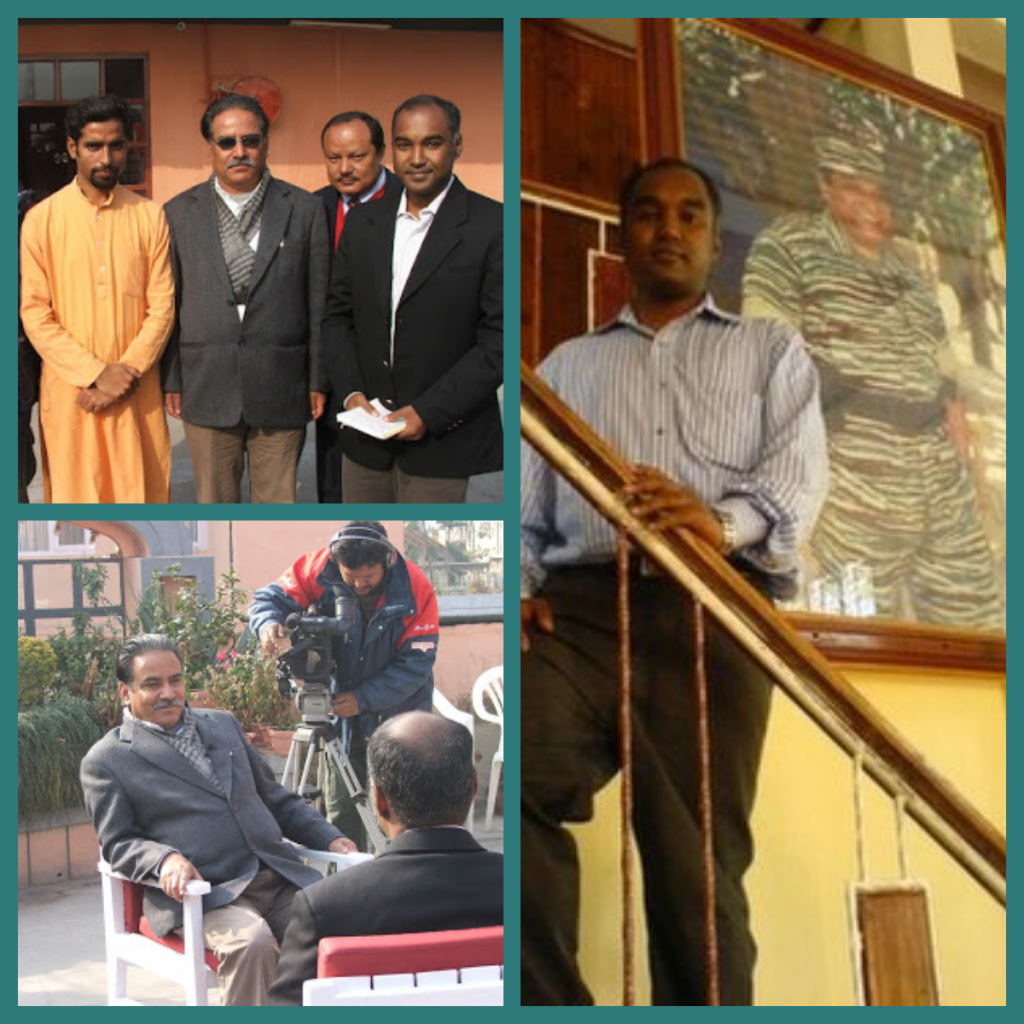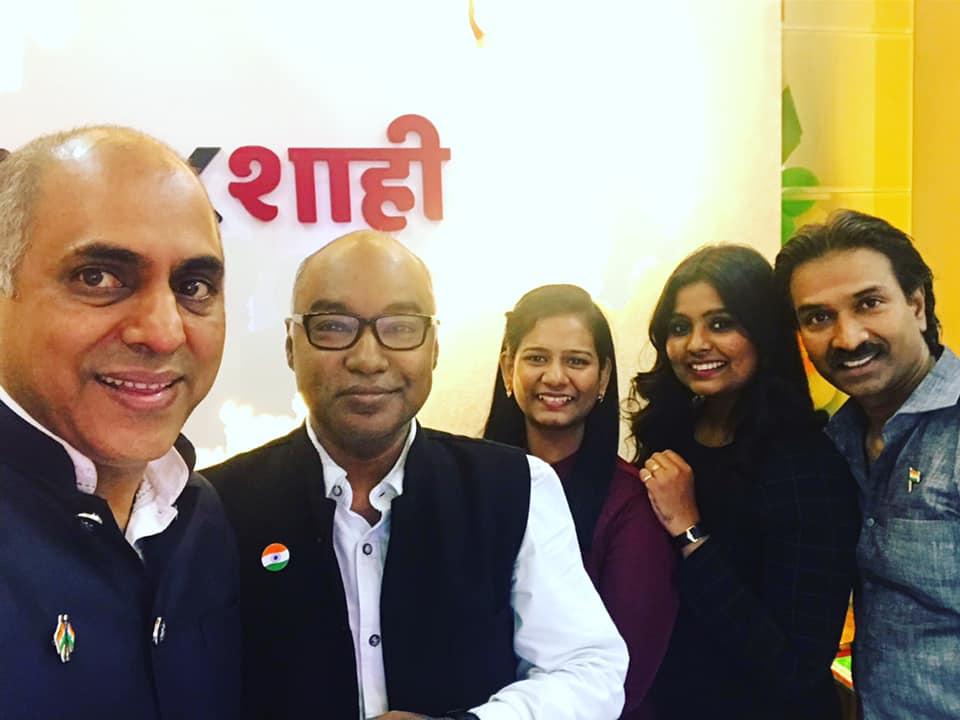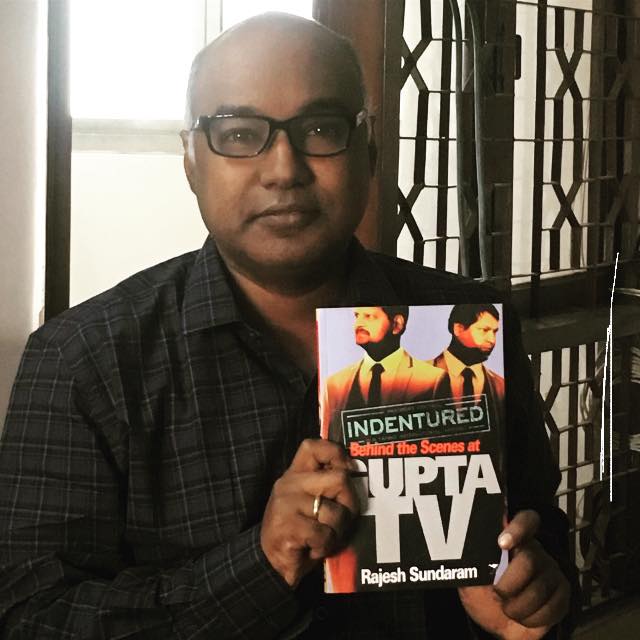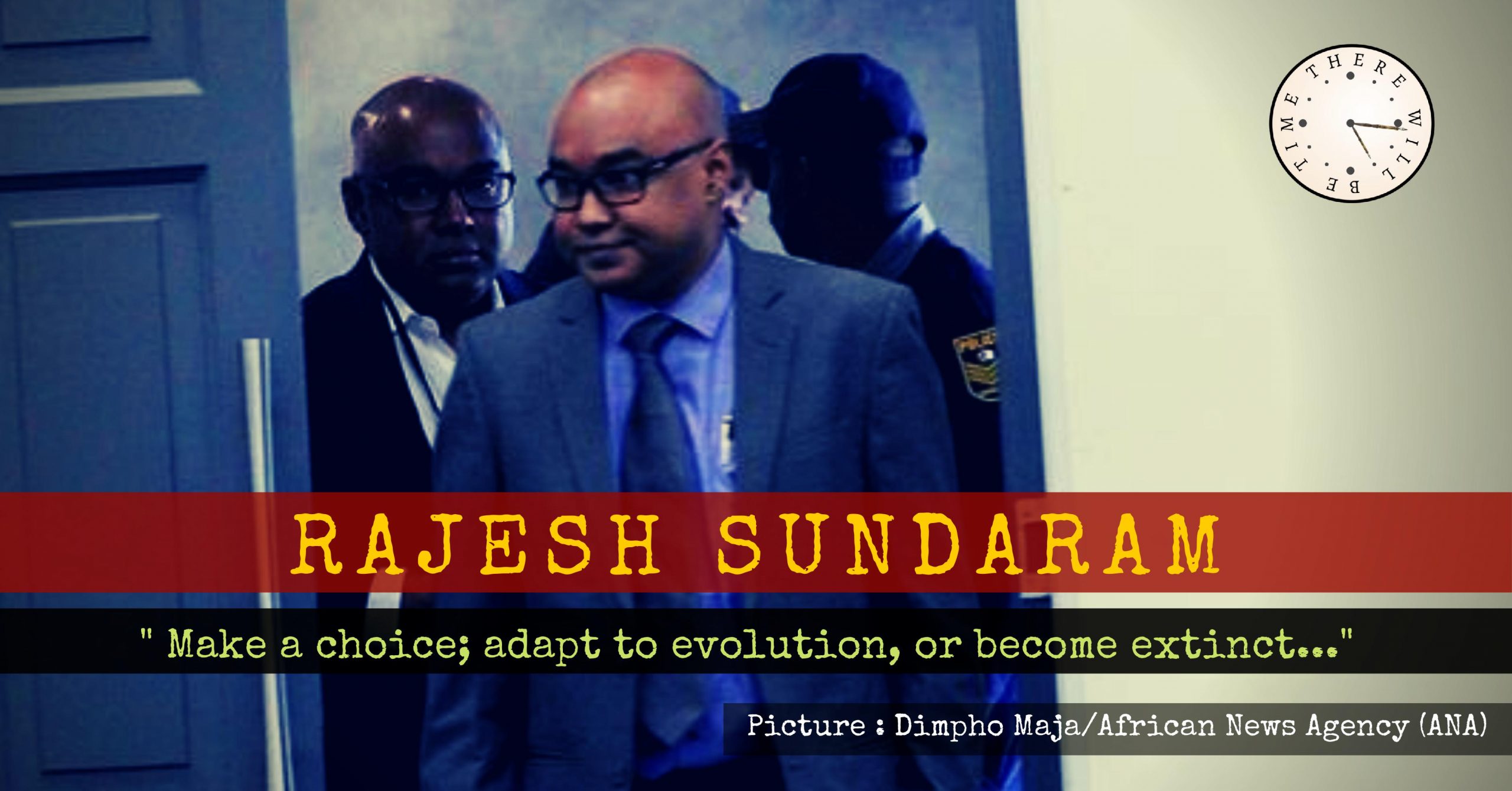Rajesh Sundaram joined TV Today a couple of years after me; by then, after toying with the idea of weekend programming through Auto Shows, features and news-specials, I had been assigned to produce a daily evening show called ‘Ground Zero’. It was designed to be an OB Van based half-hour with reporters around the planet, mostly mixed live in the PCR, on contemporary issues, including political and social daily-quips.
Then, and in ‘Inside Story’ after that – we often did what could be called South Asian conflict stories. Rajesh was in assignment, and an expert in those stories. Talk about LTTE, or the Maoist insurgents in Nepal, or Baloch rebels – he was our go-to person.
His long stint in Al Jazeera might have prepared him for this ‘niche’ beat – but I do have my doubts that he covered these stories because he liked them, personally.

I picked these up from his now defunct blog.
All of this was 10 years back. I was young; Rajesh was younger.
Over the years, I have learned to respect him for his resilience and ability to adapt to the ever changing world of TV News, and this blog is about that.
While quite a few of my journalist friends couldn’t cope up with the changing news-scenario, he not just continued, but thrived. He never stopped being relevant.
After a five odd years stint in TV Today, brushing up his managerial skills – he became part of a Team in New Delhi that set up News Nation. Then he went off to South Africa to set up ANN 7, came back and became part of the consultative process for Rajasthan Patrika Television, then took up a project in Chennai called News7 Tamil, followed by a brief stint of consultancy in Delhi, and back to Chennai, to set up Cauvery News.
When I met him a couple weeks back, he was stationed in Mumbai, setting up Lokshahi, a Marathi language news Channel. Lokshahi came up in a record time of just about three and a half months; it launched on 26th January this year.
Rajesh says it’s doing well – as of now.
Over a cup of coffee, I took the opportunity of asking him about the impetus behind this unusual career-arc. Apparently, he doesn’t think it was unusual. It was all a survival-technique. It’s the fittest that survives in News TV.

Picture Courtesy moviegalleri.net
If I understood it right, Rajesh identifies emerging trends in the processes of news-gathering and news-dissemination – and combines this newly acquired and consistently updated ‘funda’ with his innate ‘traditional’ editorial skills.
And that’s what keeps him ahead of others.
Tough call, I must say. Through my own experiences – I would testify that technology changes not every decade or year – but in every few days.
Rajesh adds, it’s not just becoming more efficient – it’s getting cheaper; and that comes with its own set of problems, and solutions.
Yes, I know what it feels like becoming a dodo.
I remember my early years in TV journalism and the apprehensions it spread among my seniors in print, who were trying out TV. We too were out to do something new then – into a vocation that no-one understood, including our parents. For us, print was so ‘yesterday’ then.
And then, when the TV news-explosion happened I was right in the middle of it – soaking in its warmth. Even there, I have seen seniors from Doordarshan times wilt and wither away in Breaking News TV, and not just because they couldn’t cope to the technology upgrades. They were, simply speaking, outpaced.
And now, TV News, as we know it – is on its way out. Fact is, New Media is pushing everything else out, from everywhere.
I do agree with Rajesh, that nobody in our business of media can be sure of what the future holds for them.
But yes, that shouldn’t stop us from being prepared for it.
In some stations, Rajesh has been the editor-in-chief for the News Director.
He has set up Hindi stations which he speaks fluently; set up English stations; he has been part of teams that have set up Tamil Stations; the station that he is heading right now as a Principal Consultant is in Marathi language.

With Rajesh in the middle, we have Vijay Shekhar on the extreme left, and Rajesh Tyagraj, Shilpa Hegde Matondkar and Monisha on the right.
So basically, more than the language, it’s about the process. His role is to make sure of the ‘old-fashioned’ rules of journalism about neutrality, about checking the sources and all of that is in place. While Rajesh mostly sees himself as an editorial person, he is also someone who guides the technical team into what the editorial requires.
It’s not always smooth sailing, though.
Rajesh often looks back in annoyance to the times he spent at ANN7 in South Africa. No, not because of the people he worked with – he is proud of the young team he headed there, along with a few more Indian journalists. He is happy of how the channel shaped up in terms of technicalities, in record time.
What he regrets is the Mafia quicksand that caught him there, incited by the Gupta family, key stakeholders of the Channel.
((BOX OUT))

Rajesh did want to leave South Africa amicably; He told the Gupta Family about the ethical differences he had with them – and requested to shake hands and part ways; but they insisted that he has a contract, and that he will have to fulfill it; not just that, they let out their bodyguards to prevent Rajesh from leaving – and all that…
Anyways, that’s another story, and a long one at that.
The book that Rajesh wrote reads almost like an international crime thriller – I think you ought to read it. All I would say, it does require tremendous courage to stand against the state-sponsored power-brokers in a foreign country – and survive.

Good thing is, even though Rajesh stood firm against his employers – it never hampered his professional career. He continued getting jobs, and not just because of his technological or adaptation skills.
It’s because the kind of a person he is.
I would vouch for that.
Rajesh helps people without blinking an eye – just because he likes being helpful.
I remember – while he was in Cauvery TV, a few years back, he was going through a terrible phase. His liver had stopped working, and even while in dialysis, he was working incessantly to make the Channel succeed.
I was writing a film from MEA then, on Indo-Afghan Cricketing Relations, for my friend Ishani. It was critical that we got hold of Rashid and Nabi – the star Afghan Cricketers who were with the IPL team Sunrisers Hyderabad . I called Rajesh for help, and he promptly put me across to the right people without asking any questions – despite being in great personal crisis.
He is a wonderful person, my boss Rajesh; and a true fighter.
After getting a Kidney transplant from his wife, he is now in the pink of health. His face book updates on the treadmill are a real treat to read; his family pictures with his two daughters are loaded with life and laughter.
His greatest strength is probably his almost infectious positivity.
Rajesh calls it a day, with his signature smile, “I am proud of the work that I have done – especially with the young journalists. I believe that if you get new technology and young people, it works much better than with old people and new technology.
But of course, you are as young as how much technology you adapt, and how quickly you do that. So if there is a sixteen year old who is not on snap-chat and who is not on Instagram, I think I am younger than them; since I am in all those platforms…”
Well that you are, Rajesh Sundaram!! Forever young, and future ready.
And stay so, for our sake, so that we feel young too.



Nice article. We appreciate your writing.
Very nice… Through your eyes I am having some insights of the drawing rooms of some other professions and of how people in such professions struggle and thrive… Keep posting…